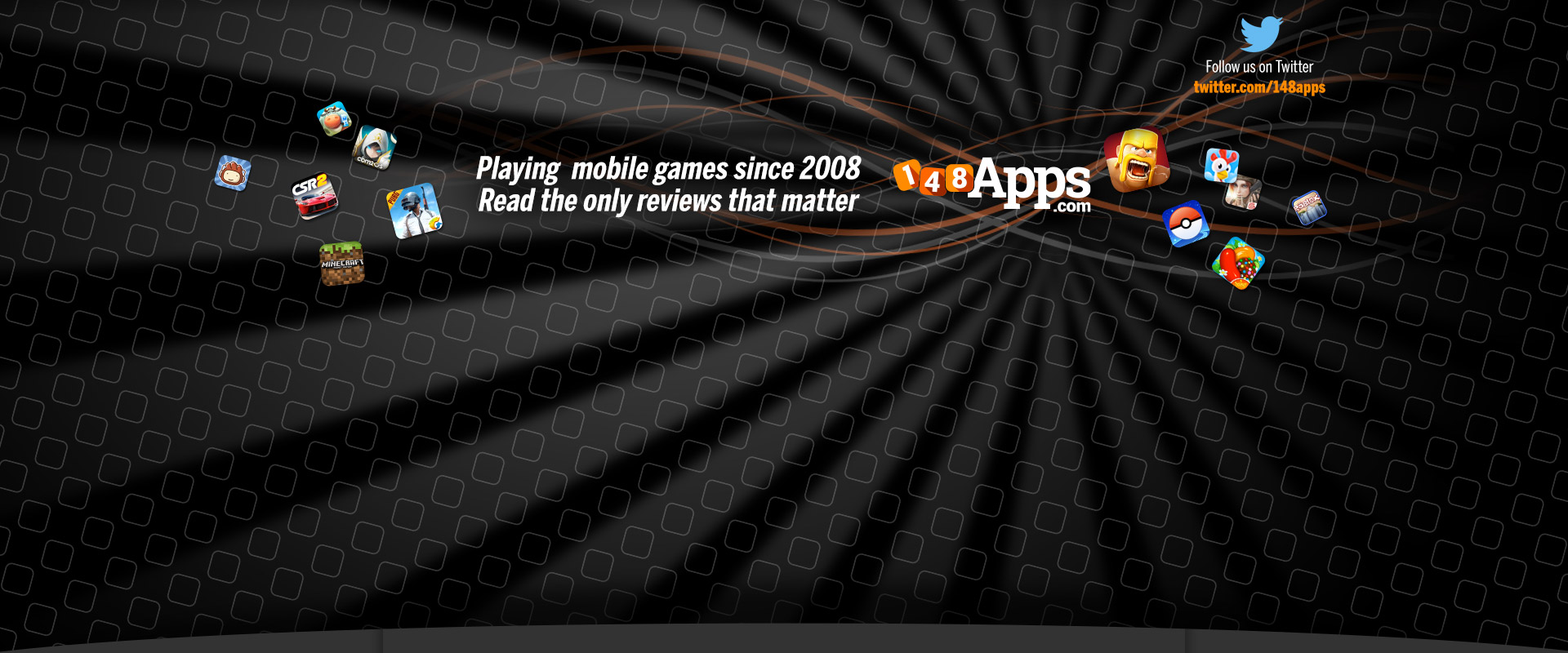
David Frampton, the sole proprietor behind Majic Jungle Software, has been on the App Store since day on with his game,
Chopper. Ever since then, he's become one of the first developers to experiment with TV gaming with
Chopper 2, and took the open-world crafting genre to a mobile-friendly place with
The Blockheads, which recently got a big online multiplayer update. He took some time out to answer our questions about his experiences on the App Store and what he thinks about the future of the store.
148Apps: Why did you get started making apps for the App Store, in particular Chopper?
David Frampton: Before the App Store was announced, I had a day job and was saving towards doing full time indie shareware Mac/PC game development. But then Apple announced the App Store and it seemed like a much better opportunity to survive as an indie, so I decided I had to do my best to have something on there as soon as possible. Chopper was a great fit, given it was a relatively straightforward port and suited the iPhone. So I spent every evening and weekend working on it, right up until the deadline for submitting apps for day one. Boy am I glad I did!

148Apps: You explored TV-based gaming in a significant way with Chopper 2. How did that work out for the game?
Frampton: I think it was great, it did a lot to publicize Chopper 2 before launch, gaining a lot of attention due to the unique wireless control scheme. It was a good fit for the game, and when AirPlay for the Apple TV came out later it was only natural to support that too. I'm not sure that a huge number of people still play Chopper 2 on their TVs, it was and still is a bit of a novelty. But I still think there is great untapped potential in that area.

148Apps: What do you think about future pushes into TV gaming in the market now?
Frampton: I don't really think that AirPlay in its current form can break out of its niche, and I'm not convinced that a full blown App Store for the Apple TV is the answer either. So it's a tricky one to predict. If Apple can find a way to make AirPlay far more seamless and accessible it would have a very positive impact. Or if an extremely popular game used TV integration very well it could have the potential to transform the space, too. Also the new iOS controller APIs hint that Apple might be looking towards future developments in the area.
148Apps: You've made a push into free-to-play with The Blockheads. How did you feel about making a game with this f2p model?
Frampton: I was hesitant at first, but it's been a very positive experience. One thing that is really great about it is that there is financial benefit to keeping up on update releases. With Chopper and Chopper 2 I rapidly saw diminishing returns for the effort I was putting into making updates. With The Blockheads, every update sees a significant increase in IAP sales and ad revenue. Given I have lots of ideas for improvements and I want to keep adding to the game for some time, this is great. The other awesome thing is that such an insane number of people are playing it. To date it's made less money than either Chopper or Chopper 2, but it has had 10x the downloads of either, and has many many more people playing it every day. This makes me really happy. A game needs to make money to pay for development, but seeing lots of people playing and loving the game is the biggest reward.

148Apps: As a solo developer on the App Store, do you think that it will still be viable in the next few years for developers who want to go solo to keep thriving?
Frampton: There's no doubt that the quality of the best games on the App Store just keeps going up, and the bar for any game to get noticed keeps getting higher along with that. But in saying that, throwing more developers at such a problem isn't usually a good solution. It seems pretty common for even the biggest studios to have small clusters working on each game, often only a handful of people. A small team will have a time and experience advantage over a solo developer, and big companies with many small teams have a better chance of striking it lucky with a particular game. But an experienced solo developer can spend a bit longer and if they're lucky, still come up with something that competes with multi-billion dollar companies. It's awesome, and I can't see it changing significantly any time soon.
148Apps: What is your biggest wish for the App Store in the future?
Frampton: Really I just want to see Apple and the App Store thrive. New hardware and OS features are always exciting, both for the new opportunities they provide to developers, and for the new potential audience they can attract. Already we have hundreds of millions of potential customers out there that can download and pay for our games at the tap of a button. But there is still plenty of room for Apple to expand, both within the confines of iPhone/iPad and into totally new markets. And given its success, wherever Apple does take the App Store, there's a decent chance that they'll also take us developers along for the ride.
Thanks to David for his time; it is greatly appreciated.
[ Photo Credit Jon Jordan ]
























